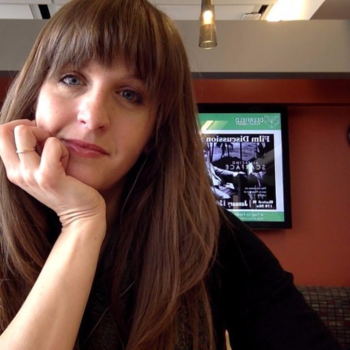Dr. Alana Sobelman

Selma Stern PostDoc-Fellow: Sommersemester 2018
Alana Sobelman served as a summer Postdoctoral Fellow at the Selma Stern Zentrum from August to September, 2018. She completed her PhD, entitled Autobiographical Turns of the Freudian Scholar: Life Writing of Peter Gay and Sarah Kofman, under the supervision Prof. Mark H. Gelber at Ben-Gurion University of the Negev in 2016. She completed her MA in Holocaust Literature at Ben-Gurion University (2010) and her BA in English and Writing (with honors) from the University of Illinois at Chicago (2005). In 2011 she received the Negev-Zin Scholarship, which awards full funding to outstanding Ph.D. candidates in the Humanities, and which was renewed for four years. In 2008 she received the competitive North Rhine Westphalia Visiting Scholars Fellowship, which she used to conduct three months of research towards her MA at Dortmund University. Also in 2008 she received the Sarah Bat Volfnova Prize from the Department of Foreign Literatures and Linguistics at Ben-Gurion University, awarded to a single Masters student with a track record of academic excellence.
Her PhD examined the Holocaust life writings of French philosopher Sarah Kofman and German-American cultural historian Peter Gay, both having lived beyond the Holocaust (in very different contexts), both scholars of Sigmund Freud. Her dissertation posits that the autobiographical texts of Gay and Kofman share unexpected spaces with their theoretical works. By examining the multitude of concepts and arguments contained in their autobiographies in relation to their academic writings—some which parallel, others which modify their theoretical works—new possibilities for reading both scholar-autobiography and scholarship emerge.
Since completing her PhD, Dr. Sobelman has published articles and book chapters on a range of topics, including psychoanalytic concepts in the avant-garde works of Arnold Schoenberg; Sarah Kofman’s autobiographical work relating to Franz Kafka; and the Derridian question of death and friendship in the eulogistic writings of both early twentieth-century and contemporary scholars of history and philosophy.
Dr. Sobelman’s current research engages with public obituaries of Holocaust survivors since 1945 in the United States and Germany. She focuses on issues of genre, time, and place as they relate to these obituaries in order to challenge the concept of “urgency” pertaining to the dissemination and consumption of written testimony of deceased Holocaust survivors.
